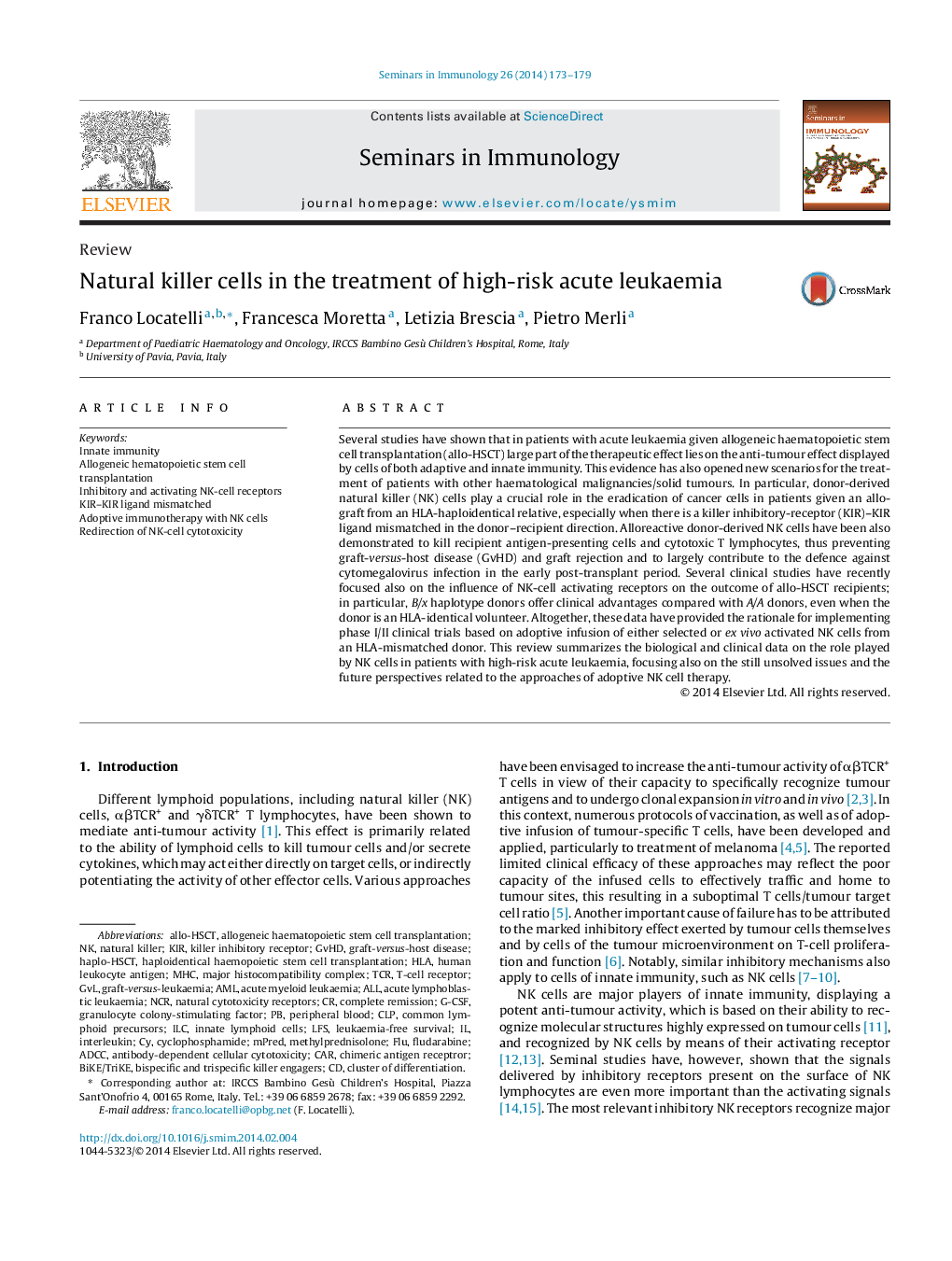| کد مقاله | کد نشریه | سال انتشار | مقاله انگلیسی | نسخه تمام متن |
|---|---|---|---|---|
| 3391363 | 1221038 | 2014 | 7 صفحه PDF | دانلود رایگان |
• Alloreactive NK cells reduce the risk of leukaemia relapse after haploidentical HSCT.
• Depletion of αβ T lymphocytes is a promising novel strategy of graft manipulation.
• Activating receptors of NK cells play an important role in influencing the outcome.
• Adoptive infusion of NK cells can be of benefit for patients with acute leukaemia.
• NK cells can be specifically redirected towards tumour targets.
Several studies have shown that in patients with acute leukaemia given allogeneic haematopoietic stem cell transplantation (allo-HSCT) large part of the therapeutic effect lies on the anti-tumour effect displayed by cells of both adaptive and innate immunity. This evidence has also opened new scenarios for the treatment of patients with other haematological malignancies/solid tumours. In particular, donor-derived natural killer (NK) cells play a crucial role in the eradication of cancer cells in patients given an allograft from an HLA-haploidentical relative, especially when there is a killer inhibitory-receptor (KIR)–KIR ligand mismatched in the donor–recipient direction. Alloreactive donor-derived NK cells have been also demonstrated to kill recipient antigen-presenting cells and cytotoxic T lymphocytes, thus preventing graft-versus-host disease (GvHD) and graft rejection and to largely contribute to the defence against cytomegalovirus infection in the early post-transplant period. Several clinical studies have recently focused also on the influence of NK-cell activating receptors on the outcome of allo-HSCT recipients; in particular, B/x haplotype donors offer clinical advantages compared with A/A donors, even when the donor is an HLA-identical volunteer. Altogether, these data have provided the rationale for implementing phase I/II clinical trials based on adoptive infusion of either selected or ex vivo activated NK cells from an HLA-mismatched donor. This review summarizes the biological and clinical data on the role played by NK cells in patients with high-risk acute leukaemia, focusing also on the still unsolved issues and the future perspectives related to the approaches of adoptive NK cell therapy.
Journal: Seminars in Immunology - Volume 26, Issue 2, April 2014, Pages 173–179
